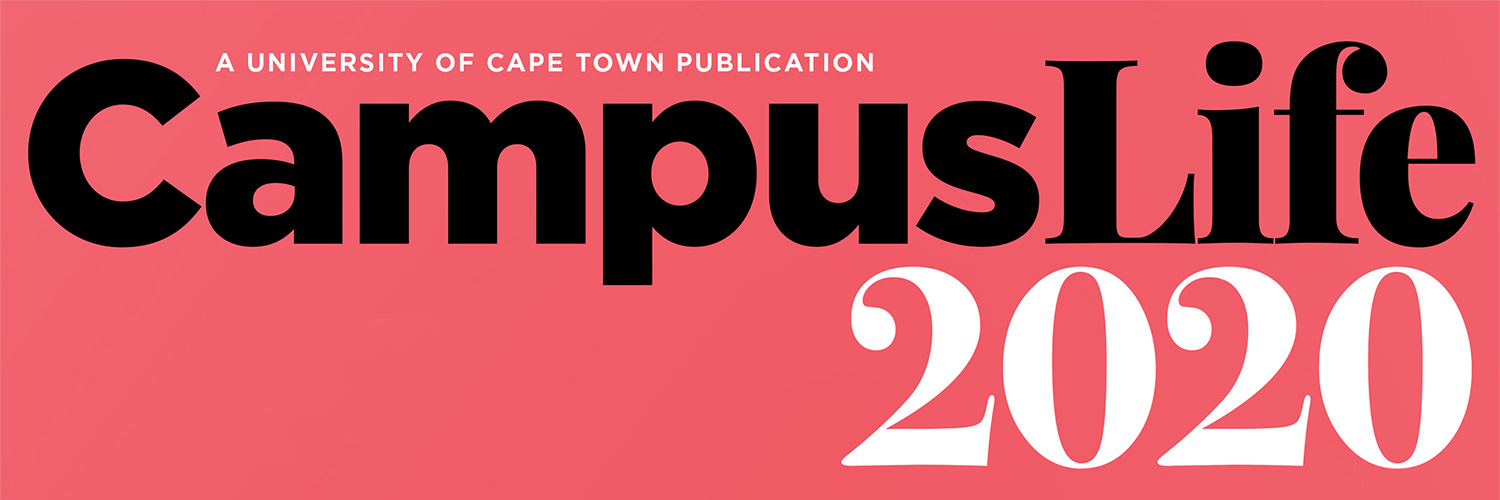Sustainability gets the green light
20 January 2020
Sustainability is top of mind for UCT. Find out how you can make a difference to fulfilling our commitment to becoming a green campus.
Recycling in colours
The colour-coded bin system has been in-place at UCT residences and on campus for about a decade and helps to keep accommodation and campus clean. The two most important colours are:
Green – recyclables: glass, paper, plastic, cardboard and tin
Yellow – non-recyclables: dirty food containers, cigarette butts, polystyrene, etc
Other colours that are used in operations/administration are:
Blue – left-over food from the kitchens that is recycled into agri-protein
White – office paper
Green Campus Initiative (GCI)
This student-led body is open to staff too and now boasts over 2 200 members. Its ultimate goal — building an environmentally friendly campus community. The GCI drives several initiatives on campus, including recycling, Ridelink carpooling and reducing carbon emissions.
Slow the flow
Water resources are under severe threat globally and UCT’s mission is to reduce its water consumption. You can help us achieve our goal by reducing the amount of water you use on campus, whether that means a two-minute shower or reporting leaks to UCT’s Properties and Services team (http://forms.uct.ac.za/#bas11).
Food security
To address the issue of student hunger, the UCT Food Security Programme provides lunch vouchers redeemable at UCT Food & Connect stores to students in need from Monday to Friday during term and exam periods. Please contact edwina.brooks@uct.ac.za for more information.
Did you know?
Many UCT courses use participatory, project-based training around campus sustainability, which allows students and academics to use campus as a living laboratory. If you end up working on a UCT research project with a sustainability focus that may have an application on campus, contact manfred.braune@uct.ac.za to see if it could become a living lab project.
The 400-seater New Lecture Theatre and the new Graduate School of Business Conference Centre were designed and built as green buildings, achieving a four-star green rating from the Green Building Council of South Africa. UCT is currently busy with three other projects targeting green building certification: the Hasso Plattner School of Design Thinking (the d-school), the School of Education and Avenue Residence.
6 simple tips for sustainable living
Reduce, reuse, recycle
Before you buy something, think about whether there’s another option that produces less waste. Before you throw something in the dustbin, think about whether it can be recycled. Before you recycle something, think about whether it can be upcycled. Reuse whatever you can whenever you can — Google has a million ideas!
Burn calories, not petrol
Take a walk, lace up your running shoes, get your hands on a skateboard, borrow a bicycle – anything to avoid being a single driver in a car. If you must, arrange a carpool or use public transport whenever you need to get around. Remember, the Jammie Shuttle is freely available for students and staff, using low emissions buses (check the Campus Guide for the Jammie Shuttle map).
Save energy
Eskom still relies on coal-fired power stations, which emit carbon monoxide and dioxide into the atmosphere, cause major air pollution and contribute to climate change. The less energy you use, the lower your carbon footprint. So turn off lights in empty rooms and unplug appliances when they’re not being used (even when they’re turned off a lot of devices still draw electricity).
Grow green
With rapid urbanisation and global deforestation, there are simply fewer plants around to convert carbon dioxide into oxygen. So grow a garden wherever you are, even if it’s just a pot of herbs on your windowsill, or plant or sponsor a tree (www.greenpop.org).
Drink from the tap
Bottled water is not necessarily better than the water from the tap, especially in Cape Town, which was awarded a 98% score in the Blue Drop Drinking Water Quality certification process. The city’s tap water is clean, cheap and sidesteps the environmental harm caused by the extraction of spring water and all those single-use plastic bottles.
Ditch the plastics
We all know that plastics harm the environment when they end up in landfills or in the ocean, but the damage actually starts during the manufacturing process, which releases pollutants into the atmosphere. Single-use plastic products (think straws, ear buds, product packaging) are a particularly big problem, so avoid them wherever possible.
 This work is licensed under a Creative Commons Attribution-NoDerivatives 4.0 International License.
This work is licensed under a Creative Commons Attribution-NoDerivatives 4.0 International License.
Please view the republishing articles page for more information.
All photographs UCT, Je'nine May, Michael Hammond, Brenton Geach, Unsplash, Flickr, Pexels, Freepik.
Orientation 2020
Previous Editions
































